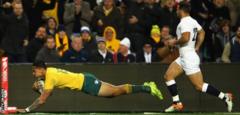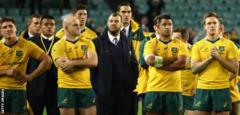ONLINE FINTESS
It's quite obvious that Nicole Coco Austin has a big, voluptuous bubble booty, but let's not forget about her ridiculously large pair of "knockers" as well. Can you imagine driving down a bumpy road purposely just to watch them jiggle? Or watching her big booty jiggle up and down on a treadmill in tight clothes? We can hear the deep sighs now, let’s just hope in the near future she’s on live television and has some sort of wardrobe malfunction (where both her top and bottom accidentally slips off). Here we have included 50 photos of Nicole's "melons" and "assets" absolutely pouring out of her top and bottom - guaranteed to make your knees weak while you keep begging for more. You will not believe what she exposes on #50!
.
It's a common phenomenon; a man complains he's feeling too hot and throws off the duvet while his female partner burrows under it and wishes she had some woolly socks.
While each partner accuses the other of complaining, the difference between male and female temperature control is not simply hearsay.
In fact, there are proven differences between men and women when it comes to the way their circulatory system functions.
Women are better at conserving core body temperature - to keep a developing foetus warm - while men's can drop slightly without them noticing.
Originally written for medical blogging site The Hippocratic Post, here we explain exactly why women are always cold...
Female hormones, smaller body size and lower metabolic rate are all factors that contribute to a loss of heat from women.
Women have a higher surface area to volume ratio than men and shed heat faster.
They have less heat-generating muscle mass and tend to get colder around menstruation.
Most importantly, women are better at conserving their core internal body temperature than men, most probably for reproductive reasons, to keep any developing foetus warm.
As a result, when the ambient temperature drops, a woman's circulatory system will divert blood away from her skin and extremities.
A man's core temperature will simply fall slightly and he will be unaware of any change.
Although physiologically there is no structural difference in the circulation between the genders, women can often feel at the mercy of a process we can't control.
We faint more often, we endure hot flushes before and during the menopause and we are more likely to suffer from low blood pressure-induced fatigue and depression.
Cold extremities moreover, can cause more than minor discomfort.
Women are nine times more likely than men to suffer from Raynaud's disease, a painful and often debilitating circulation disorder that affects an estimated 10 million people in Britain.
HUMAN CIRCULATION: A MASTER OF ENGINEERING
When it works efficiently, the human circulatory system is a masterpiece of engineering.
Blood, the body's transport system, is pumped to and from the heart, via an elegantly simple, yet intricate network of blood vessels.
The free-flowing movement of blood round our bodies is central to our health.
Crucially, cholesterol, the modern killer responsible for an epidemic of cardiovascular disease, takes its toll by clogging up our arteries.
By obstructing the passage of blood, this places strain on the heart, which has to pump harder to power circulation.
England whitewash Australia: Dylan Hartley says England can improve
England are still searching for their "perfect game" despite clinching a 3-0 Test series victory over Australia, captain Dylan Hartley says.
Hartley's team won a thrilling third Test 44-40 in Sydney on Saturday to complete a series whitewash.
"We have scored 44 points and not played perfectly so there is still a lot to work on," said Hartley.
"We weren't at our best and we had a number of players sub-par," added England coach Eddie Jones.
- England are going to be a joy to watch - Dawson
- England win Sydney epic to take Australia series 3-0
England had never won a series in Australia, but they followed a 39-28 victory in the first Test in Brisbane with a 23-7 triumph in Melbourne before completing the job in Sydney.
Jones has guided them to nine successive wins, including the Grand Slam at the Six Nations, since replacing Stuart Lancaster in November after they failed to get past the group phase of the 2015 Rugby World Cup.
Australia reached the final of that tournament, but England have since moved above them to second in the world rankings, only behind World Cup winners New Zealand.
However, Hartley thinks his side can improve further.
"It's been a long season - we didn't want to use this as an excuse but it was evident out there," he added. "Australia threw everything at us, but it was great character by the guys to hang in there and close it out.
"It was our last 80 minutes of the season and I'm proud of how the guys conducted themselves. We have made some history. We put everything into it, can be proud of what we have achieved and will enjoy it.
"We put a lot of pressure on ourselves to play the perfect game and we can all agree it wasn't perfect."
'We've got a lot of work to do'

Australian Jones agreed with his captain that his side would need to improve if they were to move above New Zealand.
"That was a brave effort to beat a very good and determined Australian side,'' said Jones.
"We're pleased with the 3-0 result, but realise we've got a lot of work to do.
"We're inconsistent in our defence, we've had two poor games in defence and one very good game and if we want to be the number one team in the world then we need greater consistency.''
'Solar-system class'

England fly-half Owen Farrell kicked 24 points in the third Test and Jones praised his efforts.
"Owen has been absolutely terrific on tour,'' said Jones. "He's kicked well and played well - his kicking is solar-system class.
"The players have been training since June last year. They haven't had a weekend off. That is a fantastic effort.
"To win that game was a superb effort. They showed fitness, toughness and were brave."
'Too many little inaccuracies'

Australia coach Michael Cheika felt his side had wasted a good chance to claim a victory.
"There were too many little inaccuracies after really good build-ups," he said. "In two matches we scored more tries and you can't say: 'Oh well, we should have won because we scored more tries.'
"We lost because we made too many little inaccuracies. we lost too many moments in the game and that cut off our flow."
For the latest rugby union news follow @bbcrugbyunion on Twitter.
Subscribe to the BBC Sport newsletter to get our pick of news, features and video sent to your inbox.
Brexit: EU spells out procedure for UK to leave
The European Union has clarified the way the UK can kickstart formal negotiations to exit the bloc following Thursday's referendum.
It says Britain can trigger Article 50, which sets a two-year deadline for a deal, by making a formal declaration either in a letter or a speech.
UK PM David Cameron has said he will step down by October to allow his successor to conduct the talks.
But EU foreign ministers have urged Britain to start the process soon.
Since Thursday's vote there has been intense speculation about when, and how, the UK might begin formal negotiations.
A spokesman for the European Council, which defines the EU's political direction and priorities, reiterated on Saturday that triggering Article 50 was a formal act which must be "done by the British government to the European Council".
"It has to be done in an unequivocal manner with the explicit intent to trigger Article 50," the spokesman said.
"It could either be a letter to the president of the European Council or an official statement at a meeting of the European Council duly noted in the official records of the meeting."
- Live: Latest developments
- Brexit: All you need to know
- What happens next?
- Europe's press gripped by Brexit drama
- Soros warns of EU disintegration
- Can the EU save itself?
On Saturday, German Chancellor Angela Merkel said the EU had "no need to be particularly nasty in any way" in the negotiations with Britain.
She said that deterring other countries from leaving the EU should not be a priority in the talks.
Mrs Merkel added that she was not in favour of pushing for a speedy withdrawal.
"It shouldn't take forever, that's right, but I would not fight for a short timeframe," she said.
In other developments:
- UK Labour leader Jeremy Corbyn, facing a no-confidence vote following the referendum, has sacked shadow foreign secretary Hilary Benn
- Scotland's First Minister Nicola Sturgeon says she will seek "immediate discussions" with Brussels to "protect Scotland's place in the EU"
- A petition calling for a second referendum on UK's membership of the EU has gained more than two million signatures
- There are warnings British financial institutions could lose their prized access to the EU if the UK leaves the single market
- Britain's European Commissioner, Lord Hill, who oversees financial services, is to resign
Mrs Merkel was speaking after several EU foreign ministers, including Germany's, had urged Britain to quickly implement its exit.
"This process should get under way as soon as possible so that we are not left in limbo but rather can concentrate on the future of Europe," German Foreign Minister Frank-Walter Steinmeier said.
His Dutch counterpart Bert Koenders said the continent could not accept a political vacuum, saying "this will not be business as usual".
Speaking later to the BBC, Estonian President Toomas Hendrik Ilves said he didn't think it was "even legally possible" to force the UK to speed up the exit process.
"I understand it is very difficult for Prime Minister Cameron, who was against leaving the European Union, to now go ahead and do this," he told the BBC World Service's Newshour programme.
"I think we should give them time; let them decide how quickly they want to do it."
He described Britain's exit from the bloc as "a disaster" saying Estonia had often aligned itself with the UK and had counted on Britain to present their shared views.
The UK's decision to leave the EU has sent shockwaves across the continent with leaders of Eurosceptic parties in France, the Netherlands and Italy demanding referendums in their own countries.
New road map
In response, some EU politicians have called for speedy reforms to quell further unrest.
French economy minister Emmanuel Macron suggested a new mission statement should be drafted and put to a referendum of all EU citizens.
"We've never had the courage to organise a true European referendum in its real sense," he told a conference.
"We would first build this new project with European peoples and then submit this new road map, this new project, to a referendum [across the bloc]."
The first summit of EU leaders with no British representation will be held on Wednesday, a day after Mr Cameron holds talks with members.
Global stock markets and the pound fell heavily on the news of the so-called "Brexit", while credit rating agency Moody's cut the UK's outlook to "negative".
What comes next?
What is Article 50 of the EU Treaty?
- In force since 2009 but never tested
- Allows governments to notify intent to leave. Talks then begin on a range of issues between the leaving nation and other EU members
- If no deal is reached, membership will automatically cease two years after notification
- The article is only a basic template for leaving, settling the date and some other matters. It does not automatically include issues such as movement of people or trade. The latter could take years to conclude
Spanish voters head back to polls in bid to break deadlock
Polls are due to reopen in Spain after the four main parties failed to break the political deadlock from December's inconclusive general election.
Opinion polls have suggested that Sunday's election may still not overcome the stalemate.
The conservative Popular Party (PP) is tipped to win, but to fall short of a parliamentary majority.
Polls indicate the left-wing Unidos Podemos alliance is edging ahead of the Socialists (PSOE) for second place.
The two could potentially form a broad left-wing coalition.
The centre-right, pro-business party Ciudadanos (Citizens) is forecast to take fourth place.
Analysts say many voters are disillusioned and a high turnout is not expected.
December's election was a watershed for Spain, because the PP and the PSOE had previously alternated in power since the restoration of democracy in the 1970s.
Unidos Podemos (United We Can) and other leftists argue that the PP, under acting Prime Minister Mariano Rajoy, has been discredited because of austerity and the chronic unemployment that has plagued Spain since the 2008 financial crisis.
The PP, however, says Spain's improved economic performance is proof that its policies have worked.
The UK's referendum vote on Thursday to leave the European Union has cast a shadow over Spain's election.
Mr Rajoy said it was "important to convey a message of institutional and economic stability".
Meanwhile, Unidos Podemos leader Pablo Iglesias said Europe had to "change course", adding: "No-one would want to leave Europe if it were fair and united."
Polls open at 07:00 GMT and close at 18:00 GMT with results expected two to three hours later.
Share this story About sharing
Subscribe to:
Comments (Atom)



